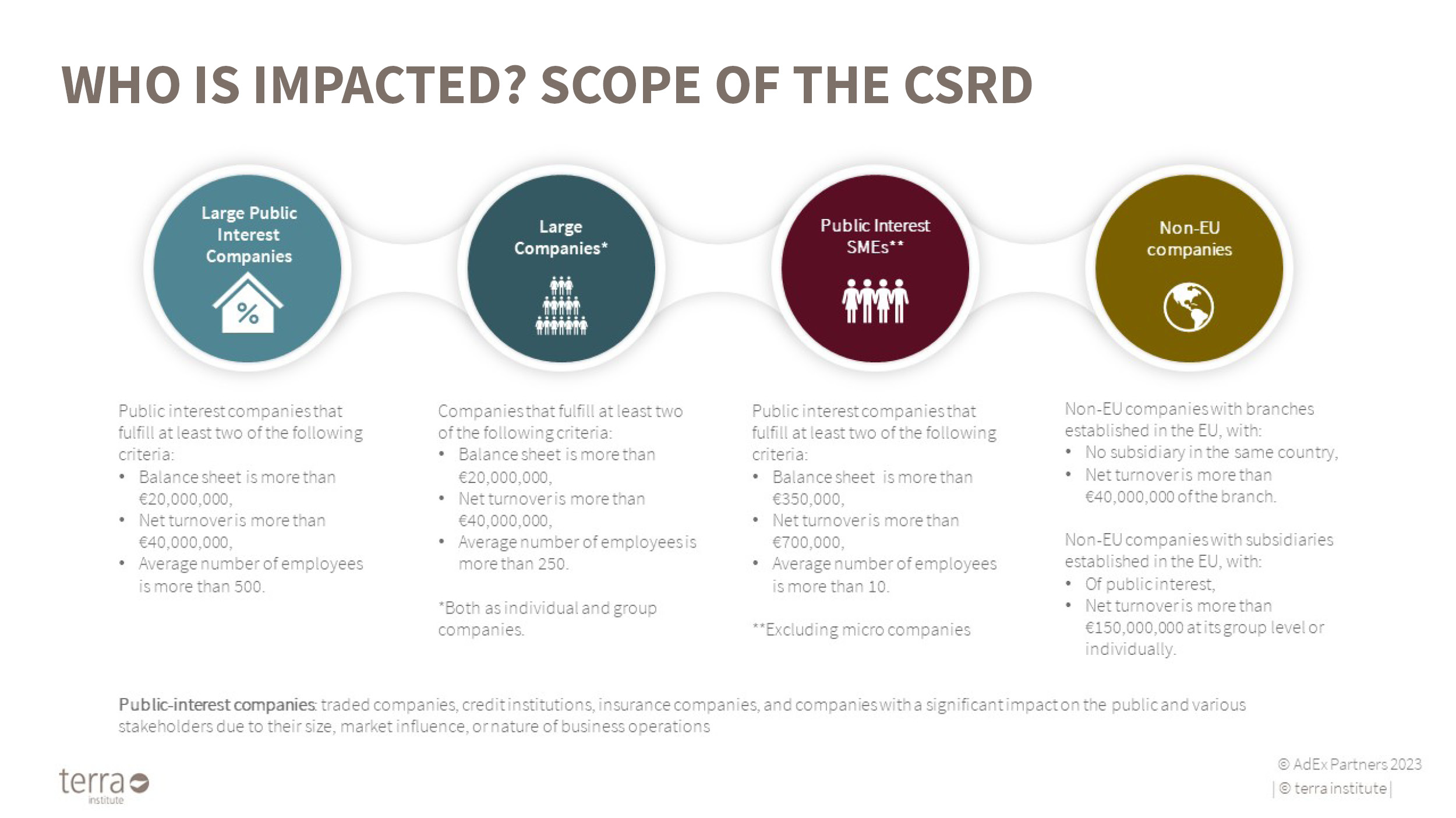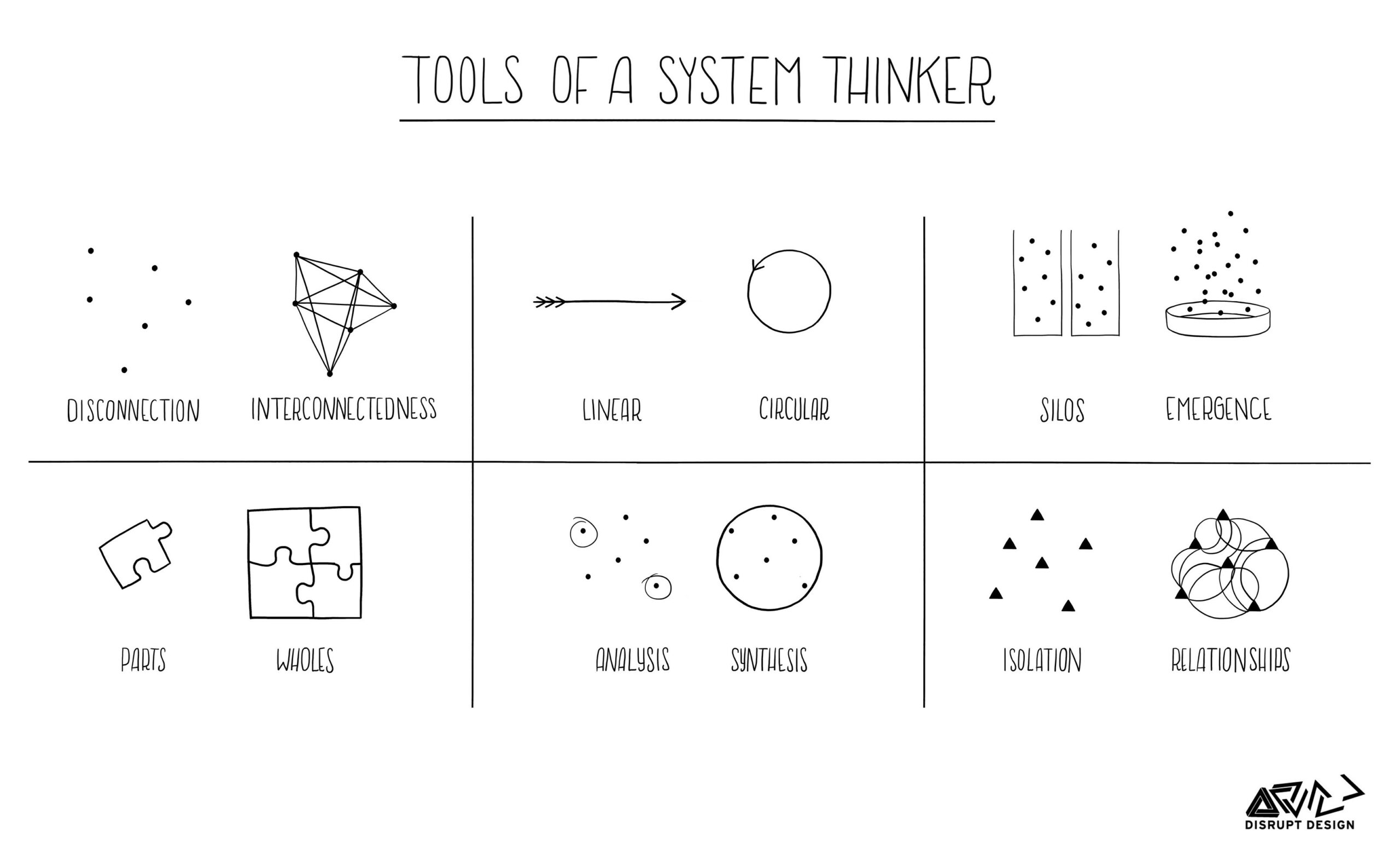FAQS ON THE CORPORATE SUSTAINABILITY REPORTING DIRECTIVE (CSRD)- PART 1
THE CORPORATE SUSTAINABILITY REPORTING DIRECTIVE (CSRD) IS AN EU DIRECTIVE THAT AIMS TO STANDARDISE AND IMPROVE SUSTAINABILITY REPORTING IN THE CORPORATE WORLD. THE EU AIMS TO PUT SUSTAINABILITY AT THE HEART OF BUSINESS AND TO STEER FINANCIAL MARKETS TOWARDS A MORE SUSTAINABLE FUTURE.
It does this by obliging companies to report on their sustainability aspects and to have them audited. The CSRD promotes transparency, enables investors and other stakeholders to make more informed decisions, and thus helps to reduce environmental impacts and promote social responsibility. The CSRD is specified by the European Sustainability Reporting Standards (ESRS) by structuring the process of identifying material topics and content to be reported.
WHAT DOES THE CSRD REGULATE?
Since 2014, the Non-Financial Reporting Directive (NFRD) has regulated sustainability reporting within the EU. In November 2022, the EU Parliament adopted the Corporate Sustainability Reporting Directive (CSRD). This replaces the NFRD.
The CSRD regulates the way companies report on their sustainability practices and performance. It requires companies to provide information in their reports on environmental concerns, social issues, workers’ rights, diversity, corporate governance and more. The directive is specified by the European Sustainability Reporting Standards (ESRS) by structuring the process of identifying material topics and content to be reported. This information must not only be quantitative, but also contain qualitative statements that illustrate the company’s impact on society and the environment. Companies must ensure that the information in their reports is reliable and comparable, as it will also need to be audited.
WHO IS AFFECTED BY CSRD AND WHO IS REQUIRED TO REPORT FROM WHEN?
The CSRD affects a wide range of companies in the EU. These include large listed companies, banks, insurance companies and certain other organisations. From the 2024 financial year, these companies are obliged to prepare and publish comprehensive sustainability reports. The CSRD thus significantly expands the scope of the past Non-Financial Reporting Directive (NFRD).

However, not all companies are obliged to do so from the outset. The first reports will be prepared for the financial year 2024 by companies & parent companies in the public interest that show a number of employees greater than or equal to 500 in their balance sheet for the financial year. One year later, starting with the financial year 2025, all other companies & parent companies considered large will report for the first time in accordance with the CSRD. Small and medium-sized public interest entities, small non-complex credit institutions, and captive insurance companies will start reporting for the financial year 2026. And the above-described companies in third countries with turnover in the EU will be required to report for the first time with the financial year 2028.
(SOURCE: Figures are taken from the EU Commission’s “Impact Assessment” of 21.04.2021; “Annex 17: Cost Analysis”, which was prepared by the Centre for European Policy Studies (CEPS)) https://eur-lex.europa.eu/legal-content/EN/TXT/?uri=CELEX:52021SC0150
Das Terra Institute beschäftigt sich intensiv mit dem Thema CSRD. In Beratungsprojekten ist das Thema ein fester Bestandteil!
Overall, the CSRD marks a significant step towards a more sustainable corporate world in the EU. Companies should be aware that they are now directly or indirectly obliged to publish their sustainability practices and performance in detail and transparently. Investors and consumers can benefit from this increased transparency by making better informed decisions and pushing companies to act more responsibly. The CSRD is therefore an essential building block on the road to a greener economy in Europe.
Do you have further questions? Or are you interested in a free initial consultation? André Meinhard and his team will be happy to help – feel free to contact him: a.meinhard@terra-institute.eu.

André Meinhard studied Sustainability Economics and Management at the Carl von Ossietzky University of Oldenburg, Germany, which enabled him to build up a transdisciplinary expertise in sustainability.
André’s current focus is on reporting, materiality and impact analyses, stakeholder dialogues and sustainable packaging.





